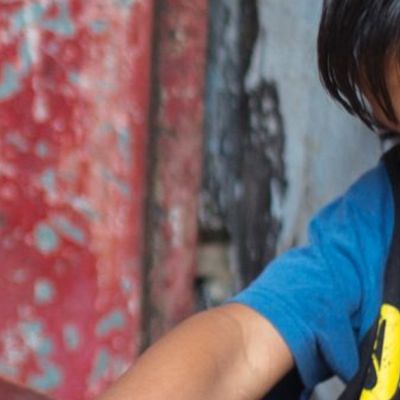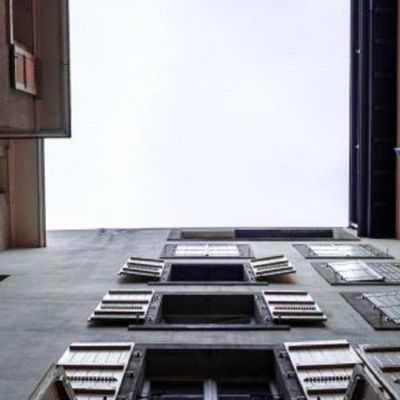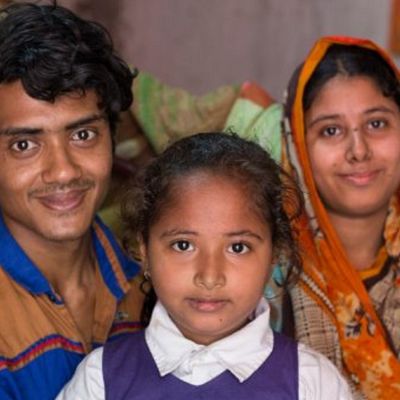Written by: Edward Lai
How many clothes do you have in your wardrobe?
You probably don’t remember the exact number, and you’d probably say: “I don’t know.” The truth is possibly that there are numerous items.
Like many people in Hong Kong, The Rev. Eugene Leung owns more clothes than he needs. When a staff from CEDAR raised the question at a church gathering, The Reverend, who was present, realised that he owned the most clothes.
That said, isn’t it normal to own more than what you need?
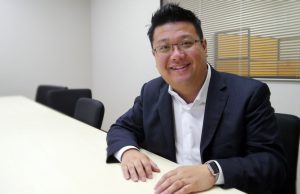
Eugene Leung said, “I’d never thought about whether I needed that many clothes. The way the fashion industry works these days is that when I’m replacing my old clothes with new ones so quickly, I’m actually (indirectly) exacerbating the oppression of the factory workers in many developing countries.”
Social justice in fashion has long been a global initiative. In 2013, a factory collapsed in Bangladesh that caused over a thousand deaths exposed fashion brands sacrificing the safety of factory workers in exchange for lower production costs. In August last year, CEDAR’s staff, Tony, went to E.F.C.C. Jachin Church (Jachin Church), where Eugene served, and discussed with teenagers and young adults about the relationship between individual consumption and biblical justice.
Tony said, “I talked to them about Isaiah 58:5-7 and we discussed the type of godliness that pleases the Lord. We then watched a documentary and reflected on the devastating consequences that our individual consumption may have. These heavy prices are often paid by the environment, which does not have a voice, and the voiceless workers and poverty-stricken people in developing countries.” He continued, “Before we buy cheap and fashionable clothes, can we stop and think about how they are made and by whom? Can we consume responsibly?”
Stop and Think
“Stop and think” means to reflect upon our relationship with the impoverished in other countries and the Earth; to reflect upon the loss of that relationship under the influence of consumerism and the lack of awareness about our unrestricted use of resources.
“The youngsters and I have had some deep self-reflections. I used to think that being environmentally-friendly is a personal lifestyle choice. After hearing Tony’s sharing, I realised that if I don’t protect the environment, I’m actually inflicting pain and suffering on others in developing countries,” said Eugene.
In Eugene’s opinion, it is against the teaching of the Bible for us to ignore or even increase the suffering of others for the sake of our own pleasure. In other words, it is not acceptable by the Christian faith if the impoverished have to “pay the price” to satisfy our desires.
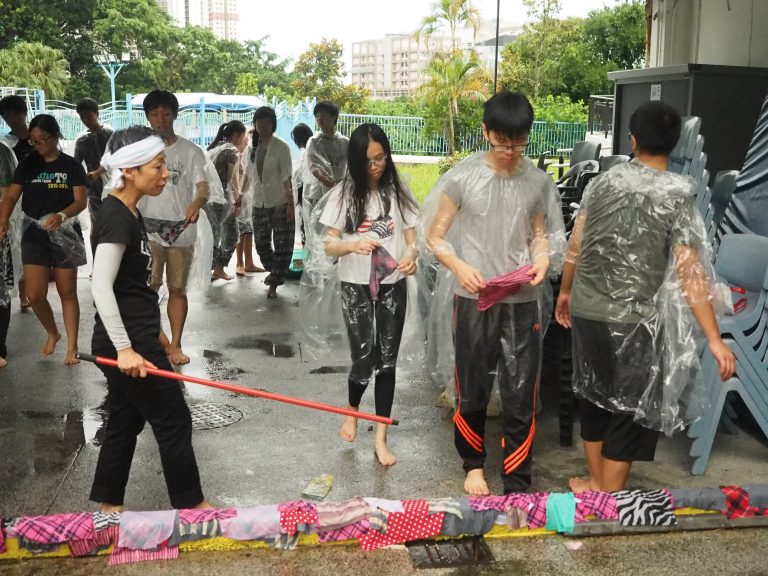
Education needs persistent efforts and an opportunity to apply the knowledge learned to the real world. Apart from the sharing session on social justice in fashion, CEDAR also held a human trafficking experiential activity in the Jachin Church’s youth camp. In addition, CEDAR also promoted the message of caring for the poor in two youth worship sessions. Through different channels, we tried to broaden the young people’s religious horizons and encouraged them to practise what they believe.
Eugene said there have been noticeable changes in the young people’s behaviour after a whole year’s effort. Some requested not to use disposable cutlery; whilst others tried to use less air-conditioning. One of the youth groups even decided to feast less and cut their Christmas party budget by a quarter so that they could donate the rest to support CEDAR’s work.
“You Didn’t Go Shopping Again, Did You?”
An example that demonstrated the change in the youngsters most perhaps is this one: Eugene posted a “snap” of his outfit on Snapchat one day, and a teenager immediately replied, “You didn’t go clothes-shopping again, did you?” As a pastor, Eugene was very pleased, even though the clothes in the photo were old.
Young people learn from their peers. When the youngsters from Jachin Church learned that some Christian workers were risking their lives to fight against injustice and to help the oppressed in other countries, they felt that it was their duty to do something to help and be involved – they either made donations to CEDAR or encouraged their friends to act responsibly in their daily lives and social activities.
This is why CEDAR persists in educating the younger generations in churches.
Sadly, in a utilitarian society like Hong Kong, teaching students to care for the poor – especially those in Africa and other parts of Asia, seems unwelcome. Isn’t it irrelevant to talk to them about the needs of the impoverished people overseas while they are busy studying and preparing for exams? Isn’t focusing on their studies and scoring the best grades in school a student’s priority?
There were similar inquiries when churches partner with CEDAR, though caring for the poor and studying should never have been put at opposite ends of the scale.
Eugene said decisively, “It’s exactly because teenagers are going through the ‘moulding stage’ that is important to help them establish the correct values and put these values into practise. If we only make them feel happy and comfortable in church, and if we only care about their studies and their future careers, then their moral values would not be “moulded” by our faith.”
It will be too late for the church to provide them with discipleship training after they have grown up and started work.
The bottom line is, what do we want our teenagers to be like? Most importantly, what types of life choices are the preachers demonstrating in front of these down-to-earth, aspiring young Christians?
Collaborating with CEDAR has changed me significantly as a preacher. I realised that when a preacher learns to love the environment and makes changes in their lifestyle, they can motivate other church-goers to do the same and bring about positive changes to the whole community. We can all spur each other on in our religious quest.
Eugene Leung
It is essential to practise what you preach.
Content of this issue
Written by: Edward Lai How many clothes do you have in your wardrobe? You probably don’t remember the exact number, and you’d probably say: “I don’t know.” The truth is possibly that there are numerous items. Like many people in Hong Kong, The Rev. Eugene Leung owns more clothes than he needs. When a staff from CEDAR raised the question at a church gathering, The Reverend, who was present, realised that he owned the most clothes. That said, isn’t it normal to own more than what you need? The Rev. Eugene Leung Eugene Leung said, “I’d never thought about whether I needed that many clothes. The way the fashion industry works these days is that when I’m replacing…
Written by: The Reverend Anders Chan Ming-chuen (Board Member of CEDAR, Associate Senior Pastor of Mongkok Baptist Church) The parable of the Good Samaritan in Luke 10:25-37 is a well-known passage of scripture. An expert in the law asked Jesus to provide an objective definition for the word “neighbour”, but his real intention was to justify his xenophobic point of view – there were people whom he did not have the obligation to love (to him, “neighbour” probably only referred to other Jews). This reflected the sense of national superiority of the expert in the law and his moral values. Even though the Jews did not have their own country at the time, they still prided themselves in…
Education is a very important part of eradicating poverty. Yet, many children living in low-income countries do not have the opportunity to receive proper education. Their parents are usually occupied by work to earn a living to put food on the table, thus they seldom think about the future of their children, who they thought would likely share similar fate like them. Because in their eyes, earning income to support their families is more important than getting an educational access for their children. We understand that if parents do not see the importance of education, they will not send their children to schools. Therefore, CEDAR has worked with World Concern Bangladesh and churches in the country to start…
Written by: Edward Lai “This year, will you be willing to donate your red packet money to the underprivileged people in other countries? “ “Yes, of course!” Fung Tin-lam answered confidently. Ting-lam, a third-grader, is like any Hong Kong boy we know. His daily routine includes school, homework, and playing his favorite toys before dinner. His life and his world, never overlap with those who live in developing countries away from Hong Kong. Even though Tin-lam has never met them, he has determined to save up part of his red packet money to share with them. 100 dollars may not be much to a lot of people; but to Tin-lam, it is a significant amount for a new toy…



